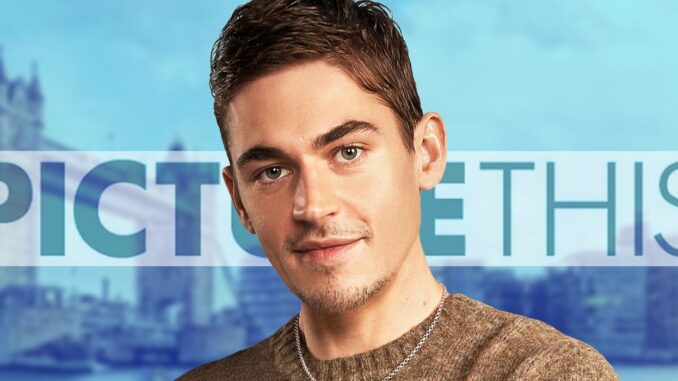
The phenomenon of a single role defining an actor, even for a significant period, is a fascinating and recurring motif in Hollywood. For Hero Fiennes-Tiffin, that defining role is undeniably Hardin Scott in the After film series. From the moment he first glowered across a crowded lecture hall at Tessa Young, Fiennes-Tiffin didn’t just play a character; he became the brooding, tattooed, emotionally volatile embodiment of a generation’s romantic fantasy. Audiences remember him, and indeed often only remember him, as Hardin, not just because the films were popular, but because his portrayal perfectly captured the specific, intoxicating allure of a problematic hero.
Hardin Scott, as written in Anna Todd’s fanfiction-turned-novel series, is a maelstrom of contradictions. He is brilliant but self-destructive, passionately loving yet cruelly manipulative, a literary student with a penchant for dark poetry and an even darker past. He is the quintessential “bad boy with a heart of gold” archetype, albeit one whose gold is buried under layers of cynicism, anger, and insecurity. The narrative arc of the After series is a dizzying dance between toxic dependency and genuine, transformative love, played out in steamy encounters and explosive arguments. For millions of readers, Hardin was a character to be dissected, defended, and desired in equal measure.
When it came time to bring Hardin to the screen, the casting of Hero Fiennes-Tiffin was an alchemical reaction. With his striking blue eyes, chiselled jawline, and an inherent intensity that radiated even in stillness, Fiennes-Tiffin visually manifested Hardin with uncanny precision. He didn’t need extensive dialogue to convey the character’s internal turmoil; a flicker in his gaze, a slight clench of his jaw, or the way he held himself with a coiled tension spoke volumes. He mastered Hardin’s signature blend of arrogance and vulnerability, making the character’s explosive outbursts feel genuinely threatening, while his moments of tenderness were heartbreakingly sincere. Fiennes-Tiffin understood that Hardin’s appeal lay not just in his looks or his rebelliousness, but in the promise of a damaged soul yearning for redemption—a redemption only Tessa could offer.
So, why do audiences still remember Hero Fiennes-Tiffin primarily as Hardin Scott? The reasons are multi-faceted and deeply rooted in the very nature of the After phenomenon:
Firstly, the sheer scale and intensity of the After fanbase cannot be overstated. Originating on Wattpad, the series amassed a global readership long before it hit the big screen. This pre-existing, deeply invested audience already had a vivid image of Hardin in their minds. Fiennes-Tiffin’s ability to not just meet but often exceed those expectations cemented his place in their collective imagination. He became their Hardin, the definitive cinematic incarnation.
Secondly, Hardin Scott is an archetype that resonates powerfully with a specific demographic. He taps into the fantasy of the dangerous, misunderstood lover who can be “fixed” or tamed by the right person. This narrative, while often criticized for its problematic undertones, offers a compelling form of escapism. Fiennes-Tiffin’s portrayal delivered this fantasy with magnetic force, making Hardin a compelling figure people loved to love, or loved to debate.
Thirdly, the serialized nature of the films meant audiences spent several years, and multiple movie releases, immersed in Hardin and Tessa’s tumultuous relationship. Each film reinforced Fiennes-Tiffin’s connection to the role, allowing the character to evolve and deepen (or at least, to endlessly complicate) over time. This continuous exposure solidified the association in the public consciousness.
Finally, Fiennes-Tiffin’s performance was transformative in a way that imprinted the character onto his own identity, at least for a time. While he had prior roles (most notably a young Tom Riddle in Harry Potter and the Half-Blood Prince), Hardin Scott was his breakout, starring vehicle. For many, After was their introduction to him, and the intensity with which he inhabited the role made it difficult to separate the actor from the character. He wasn’t just performing Hardin; he was channeling him with an undeniable screen presence that made the character feel profoundly real, for better or worse.
In essence, Hero Fiennes-Tiffin’s lasting memory as Hardin Scott is a testament to the power of perfect casting meeting an already fervent fanbase. He didn’t just play a role; he embodied a cultural phenomenon, becoming the face of a romantic fantasy that, despite its controversies, resonated deeply and emotionally with millions. He turned ink on a page into a flesh-and-blood figure whose intense gaze and complicated heart continue to linger in the collective memory, ensuring that for many, Hero Fiennes-Tiffin will always be, first and foremost, Hardin Scott.
